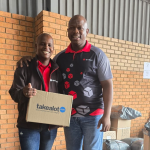It’s probably an understatement to say that the global hard lock-down gave educational institutions, educators, parents, students and learners a shock. In South Africa, it was a disruption that was experienced differently across our strikingly unequal communities, but still, everybody learnt something about education they hadn’t known before. Institutions realised the importance of their online capabilities and organisational leadership, resourcefulness and resilience, agility and flexibility. As homebound parents supervised home-schooling, many got their first direct-experience insights into how their children learn. Educators from well-resourced schools and tertiary institutions had rare opportunities to grapple with the distinct pedagogy of online education, and some developed significant new skills and capabilities. Students and learners morphed into home-schoolers, distance learners, online learners and even, WhatsApp learners.
It was challenging. It was learning. It has provoked new thoughts and conversations. There are now new ideas about how to take education forward into a post-pandemic future. There are now new ways to make quick changes to an education system that has been sluggish for so long; a system, which we have known for so many decades, that has failed to adequately equip young people with the actual skills that industries need.
SACAP (the South African College of Applied Psychology) is a SA frontrunner in translating its COVID-19 learnings into action. With the launch of SACAP’s additional study options, it has curated its personal study options to include blended learning. “The 2020 lock-down highlighted what SACAP has long known,” says Zerina Royeppen, SACAP’s MD. “Everyone studies differently and has an individual path to succeeding in their education.”
There are significant limitations for a brick-and-mortar campus monolithically-designed for group learning, to cater for the diversity of student needs. The need to address this diversity has become more and more prominent in a highly individualised modern society where our younger generations expect and need their uniqueness to be recognised. Royeppen continues, “A person-centred approach to learning has been a driving force for SACAP. It’s why we invested in the development of our online campus and its faculty many years ago. Studying online at SACAP wasn’t conceived as offering ‘an alternative’, but meeting students’ real-world needs. For years, it’s been a solid mainstream option, as well-developed and as well-resourced as our on-campus learning route. It holds equal status, and that’s why when the pandemic forced everyone online, we were able to offer all our students continuity in their studies as an immediate response to the COVID-19 crisis. Our online campus was already robust and well functioning, allowing us to transition all of our on-campus students and their educators online within the very first weeks of lock-down.”
For SACAP, the opportunity exposed by the pandemic came in exploring blended learning for more person-centred options by moving away from the binary discourse of brick-and-mortar versus online. Each approach to learning is unique taking the best of each, synthesizing how SACAP educators and students have viscerally experienced the necessary move to the online environment during the hard lockdown.
SACAP has now announced three personal study options designed for the 4IR context and honed by their learnings of the pandemic experience.
- On-Campus combines face-to-face classes on one of SACAP’s physical campuses in either Johannesburg, Pretoria, Cape Town or Durban with online resources and activities outside of class time. This is ideal for students who prefer the structure of a fixed class schedule with face-to-face educator and social interaction along with the opportunity to deepen and embed their knowledge in their own time.
- Online Flexi offers an active, engaging and collaborative learning experience for students who want the freedom to manage their weekly course requirements and their other life commitments, while still benefiting from interaction and learning activities with an expert educator and their virtual classmates. This learning approach is ideal for students who are self-motivated, independent and value the flexibility to pace themselves throughout the week. Experienced online educators and the online support team ensure that students will never feel lost or alone.
- Online Live is a hybrid approach to online learning that combines weekly real-time virtual class engagement with self-paced online learning resources and activities. Students benefit from the interactive and social aspect of the virtual classes, plus the freedom to work through learning resources and other online activities at a pace that suits them best. The real-time online classes allow for immediate feedback from their online educator and classmates, while they still have time during each week to direct their own learning, in tune with their other life commitments.
Royeppen concludes, “The On Campus, Online Flexi and Online Live study options are each distinct learning approaches that allow students to benefit from interaction and collaboration with their educators and fellow students, while enabling them to engage with other learning activities on a deeper self-directed level. SACAP, with its blended approaches to learning, is in step with this reality of the working world, and this is important to us because we aim to deliver knowledgeable and work-ready graduates to the benefit of an improved South African society.” DM


















 Become an Insider
Become an Insider
The hope is that educational institutions at every conceivable level work closely with internet service providers in order that no South African learner or student falls through the cracks left by the pandemic. The COVID19 pandemic has revealed huge and dismal inequality chasms in this country. Students and learners from poorer backgrounds do not have access to internet for purposes of online learning. As it is, the cost of access to internet is beyond affordable levels for poorer families. As a consequence, poorer students and learners have fallen behind their privately-educated more affluent peers, who have the privilege of internet at home, and therefore online learning. And this is just part of a much broader challenge. Are authorities in education looking into these issues?